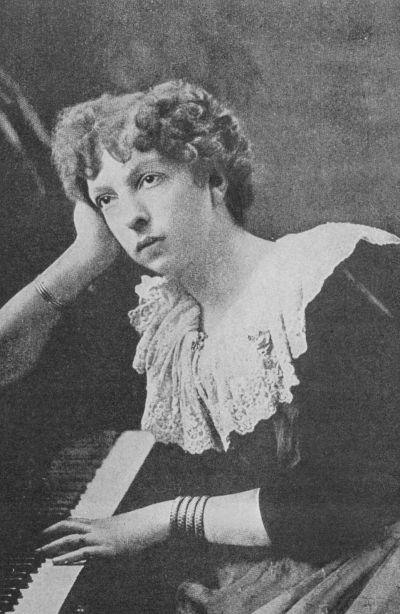By Daniel Hathaway
There are no performances on the calendar for August 8. Click here to visit the Concert Listings page for information about coming events.
ANNOUNCEMENTS:
The Cleveland Philharmonic Orchestra has openings for all strings sections and for substitute players on woodwind and brass instruments. Interested players should email personnel manager Tren Cheshier to arrange an audition time over the next 30 to 45 days.
The Canton Symphony invites visual artists to apply for its Artist in Residence program, which gives Northeast Ohio artists a chance to have pieces commissioned by a professional orchestra while also creating a visually engaging experience for its audiences in the CSO gallery. Applications are due by August 21. More information here.
TODAY’S ALMANAC:
By Stephanie Manning
If you’ve heard a piece by Cécile Chaminade, it’s likely her Flute Concertino in D. During her lifetime, the French composer (pictured above) won acclaim for her piano salon music and songs, but most of them were forgotten during the late 20th century. Her catalog includes orchestral suites, a ballet, and even a comic opera — but it’s her work for flute and orchestra which has endured into the present day.
Born on this day in 1857 in Paris, Chaminade was denied a formal conservatory education by her father but continued studying composition privately with acclaimed teachers. Inspired by French Romanticism, her works are infused with sweeping melodies and lyricism. As a concert pianist, she toured internationally both in Europe and the United States, and in 1913 she became the first woman to be granted admission to the Order of the Legion of Honour.
However, negative press attention — most of which dismissed her based solely on gender, and derided her salon music as “too feminine” — eventually caused her compositions to fall out of favor. Take a listen to her works, though and you’ll find a lot to love. There’s Pieces Romantiques for piano four-hands, and of course, there’s the Flute Concertino…or if you’ve heard that one already, take a listen to this version for bassoon.
By Jarrett Hoffman
The Amati are one of the most important families of luthiers in the history of the violin, and on this date in 1684, the greatest instrument maker in that family, Nicola Amati, died in Cremona, Italy. Some say that his instruments, particularly the larger and wider “Grand Pattern” ones, were known for producing more power in their tone. On the other hand, the Smithsonian Institution describes the instruments as beautiful and penetrating in their sound, though not powerful. Have a look at one of the instruments in the possession of the National Museum of American History here, and watch a short demonstration of both an Amati and a copy on YouTube.
And Spanish soprano Montserrat Caballé was born on this date in 1933. A beautiful summary of her life and career can be found in her 2018 obituary by Margalit Fox in The New York Times, in which Fox describes her as “among the last of the old-time prima donnas for the transcendent purity of her voice, the sweeping breadth of her repertory and the delirious adulation of her fans…”
Here’s a pairing to show off her beautiful voice in two very different contexts: “O mio babbino caro” from Puccini’s Gianni Schicchi, and the single “Barcelona” from the album of the same name, a collaboration with Freddie Mercury.




